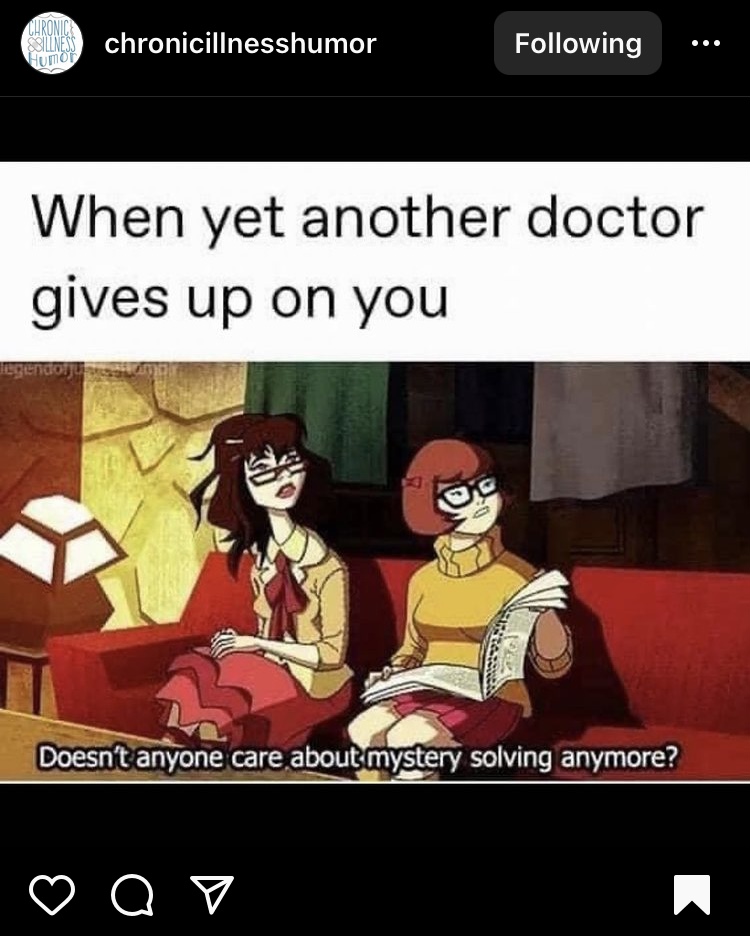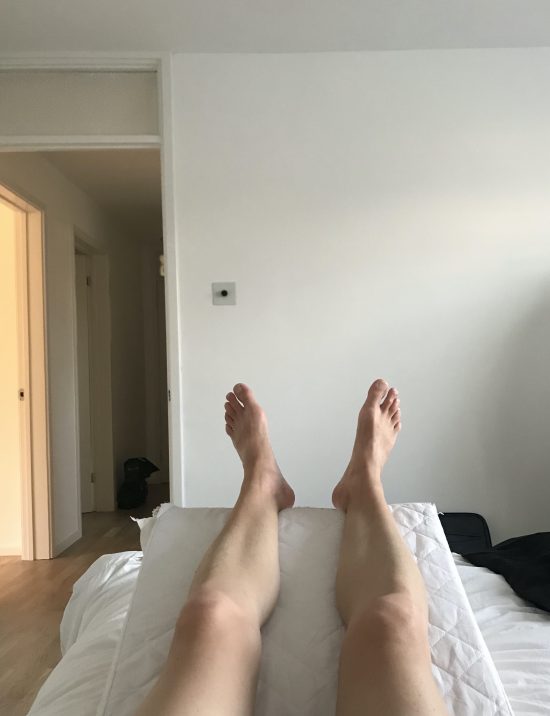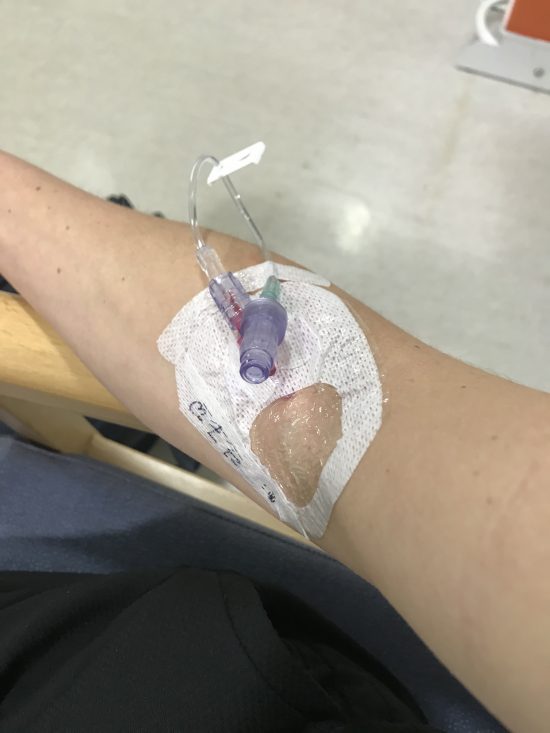I know well that a diagnosis may not at all be a solid thing.
I am now 2.5 years into long-covid, and I’m sorry that I haven’t written a blog post in really long time. I haven’t felt like recounting what’s been happening in this public form until now. This is the first of two posts coming – this first is about some of what happened, and the second reflects more of what this means. In this post there are descriptions of medical gaslighting, particularly related to long-covid, ME, and other neurological conditions. It is about a 7 min read.
I want to write this post about diagnoses. Because the battle for a diagnosis, two and half years on, is still taking place. With ME prior to long-covid, I was already many years into a battle with the medical industrial complex, struggling for answers and a diagnosis so that I could access care. Long-covid has been a continuation of this battle. The gaslighting through long-covid is achingly familiar and I would like it to stop. However, I find myself in a complicated place with symptoms that can’t be easily contained in what long-covid has come to mean over time. I certainly had and have long-covid, but my legs still crumple and drag when I walk over a certain amount, and my spine is painful, taught like a bow. Fatigue, brain fog, still like so many others for so long, also remain. There are many people who have incurred nerve damage through long-covid. Many people who cannot walk, who’s legs and arms tremble, cramp and shake. Many people numb in their limbs and learning a new way of life in a wheelchair. Many becoming familiar with a chronic condition that will be the future going on, whilst others recover slowly, remaining to be seen. For me, I am not a bad as my worst, but not back to where I was pre-pandemic. I still need to rest and energy plan. Brain fog is still a bitch. I am live in the world, though there is a limit to how far I can walk.

I have had tremors and cramps, but as these have faded, feet dragging remains. I failed the nerve damage test after fighting for it for a long time. I cannot join my friends for medical support in the nerve damage minority camp. Instead, and as I learn and understand more about neurological conditions, it seems at this stage that long-covid triggered a worsened state of something that I may have always had. The diagnosis of ME that I received in the years before the pandemic, after being variously sick most of my life, has become contingent once again. To be picked apart. To try and understand what I have always been feeling again. ME very well may still hold, but in a much more mechanical shape compared to its more popular post-viral counterpart. I fucking injured my neck aged somewhere around 11-13. At 20 I had severe, brain melting, chronic neck pain, which was named ‘medically undiagnosed’. This is pain that I learnt to manage and live with to this day. I have also felt the pain I feel in my legs in lesser ways most of my life. They burn and tingle, and they were weak often in prolonged periods. I use to write poems, bad ones, about the type of grit needed for climbing stairs.
I know well that a diagnosis may not at all be a solid thing. For diseases within this category, and there are many, diagnoses are never certain. It is a shock to learn that there are plenty of things that are not visible, or easily discernible on an MRI. It shouldn’t be shock, there are limits and gaping black holes to medical science. A diagnosis can be right and then wrong, or simply useful for a while until it’s not. I have learnt that diagnoses are partial, temporary, bureaucratic labels that are as much about gatekeeping medical care than they are about explaining why your body, brain and mind are the way that they are. That diagnoses are imbued with social and culture prejudice and operate unjustly. That the same symptoms in two different people may be diagnosed as two different things depending on race, gender, dis/ability, education and class. As well as the particular culture around the disease that you have, or authority thinks you have, together with any other factor that impacts one’s standing in the credibility economy.
I have learnt that the worst diagnoses might not be the worst medical condition possible to infer from the symptoms you have, but the ones designed dismiss you without answers, without further investigation and without appropriate care.
I have learnt that the worst diagnoses might not be the worst medical condition possible to infer from the symptoms you have, but the ones designed dismiss you without answers, without further investigation and without appropriate care. Actually I knew this already through my time arriving to ME as a diagnosis, well before long-covid arrived on shore. There are a plethora of diagnoses designed to dismiss that are utilised by the medical industrial complex, as categories to exclude those deemed ‘difficult patients’. And whilst these diagnoses may also be real conditions, they are real only to the extend that there is often not enough knowledge about such to discern a difference between a particular biological disease, and a convenient categoric dump for the doctor at hand. A tautological muddy water that mures future research for the knowledge needed to un-muddy the waters at hand. ME is both real and a category utilised by doctors to dismiss and dump away from further investigation and care. A medically unexplained condition (MUC) is another, but a dismissive category evident in the light of day. ME is a biological disease with known symptomatology, across a spectrum of severity, affecting millions, and it is also quite possibly an umbrella term for a collection of biologically distinct conditions that all, at the moment, go by the name ME.
Radical honesty is a new aim in writing about long-covid. I mean to share what the most serious and devastating symptoms feel like. The most serious and devastating symptoms for me are those imparted from the culture and ideologies of the medical industrial complex – not symptoms within our bodies, not the symptoms in my legs that limit my mobility, my foggy brain that stops my work, the continuous pain in my back – not from the disease that still courses through my veins two and half, and 20 years later, but from the medical gaslighting that continues to rain down.
I never did I receive a formal long-covid diagnosis, which means no formal support or help. I am from the first wave, March 2020, when tests were not available yet, and I am by far not alone. The first diagnosis I received from my telephone GP was anxiety. We are more fluent now in knowing the heart pain, difficulty breathing and a racing heart with dizziness standing up, as myocarditis, dysautonomia and POTS. When what I was feeling emerged in collective understanding as long-covid, and we all fought with our GPs with this new term, my telephone GP didn’t believe me, as it was for so many others. After the anxiety fib gave way, the next diagnosis was ‘just my ME’, with no explanation for the dramatic new symptoms that left me in bed, and my legs failing underneath me. This disbelief caused my covid antibody test to be denied until too late, forever denying access to the long-covid clinics. Others with positive results to show as permission to enter long-covid clinics, still were denied through the huge waiting lists. Whilst those that manage to get there would find little medical care available, except energy management and pacing advice, a community for support, but, and importantly, the capacity to be referred on for the things that fall outside the standard long-covid support.
I knew fairly early that falling legs was a long-covid oddity, as well as an alarming sign of other potentially serious things. When I begged this GP to refer me to a neurologist I was tricked into a psychological assessment for graded exercise therapy (GET). I cannot tell you how devastating it is to be asked for half an hour about your childhood, and the nature of your psychology as if the effects of this SARs Cov2 virus was something that you did to yourself, and it is all in your head. And for this to happen whilst you know exactly that GET is an abusive treatment for people with ME often making them permanently much worse, that was formed out of the prejudice that we are lazy or de-conditioned, and that the draft paper from NICE has already been published and GET will finally be retracted from official guidance on treatments for ME. It is also deeply scary to be denied neurological investigation when you are falling in a way that looks like you have multiple sclerosis.

When I reached a neurologist after more than a year and after finding a new GP, my experience was not better. The pathways and gatekeeping of care became clearer and I attempted to navigate. I did not have MS the MRI says, at least. I understood by now that the diagnoses of long-covid and ME would prevent me from access to a neurologist, no matter if my falling legs made these diagnoses inadequate descriptors in full. My job, in this interaction with the neurologist, was to tell my symptoms and medical history to fullest of my ability, without those key words. Either or both terms would see me dismissed without further investigation. Despite these efforts I was dismissed with another diagnosis anyway, and into another categoric dump. Instead of noting an unusual problem as a result of a virus triggering a complication of my medical history before, I was told I had ‘suffered a psychological trauma that had been converted to a somatized state’, which is otherwise called functional neurological disorder (FND) contemporarily and hysteria in the past. I cannot tell you how devastating it is to know, within this interaction as it takes place, that you are being given the diagnosis ‘hysteria’ in exacting other words. That you are being told that an effect of a virus that the world as yet does not know enough about, is instead being described as something in your head. I fought with this doctor within the appointment, and after at length, but could not get them to budge. I fought not least because I still needed help. She offered only pills designed for seizures primarily, which made my falling legs ten times worse. I was discharge before I could explain what these pills had done. Discharged to nowhere. Discharged to, both she and I knew, seeking a second opinion, which is a long and difficult thing to do, not least as it requires the research yourself.
Discharged to nowhere.
I have slowly arrived to enough knowledge – knowledge of what’s known as the mechanical basis of ME (which is not to say the post-viral basis of ME is not also true, and their symptoms of the same league), to understand how to describe what I have felt all along in the terms needed to access what I hope (more about hope in the next post) is now the right investigation. For others seeking answers still, I will name them – currently I pursue the possibility of craniocervical instability (CCI), given the emerging research that long-covid affects connective tissue, describing this triggering state if I had this from my neck trauma all along. My awareness of diagnoses of these types as an always uncertain things, means I leave the door open to other certain possibilities and probabilities. This means holding two or more narratives about the shape of your life and history of you body, brain and mind, at the same time. To not give in to pinning your hope one diagnostic name. I will name others I keep on the table – tethered cord syndrome; transverse myelitis – a rare result of both Covid and the AZ vaccine; paroxysmal dyskinesia which may be part an existing spinal problem or triggered by covid alone, these are some, there are likely more.
This means holding two or more narratives about the shape of your life and history of you body, brain and mind, at the same time.
I know I am searching for a diagnosis, and it sounds like I am seeking authorisation from the medical industrial systemic. Why would I need a system steeped in colonial, racist, ableist, classist, gendered knowledges, to tell me how to feel?
My next blog post takes this up, and I will put it up in the next days. I will reflect on this problematic and why searching for a diagnosis, even though it can often not look like it, is a desire that is feminist and crip and work for this cause.

